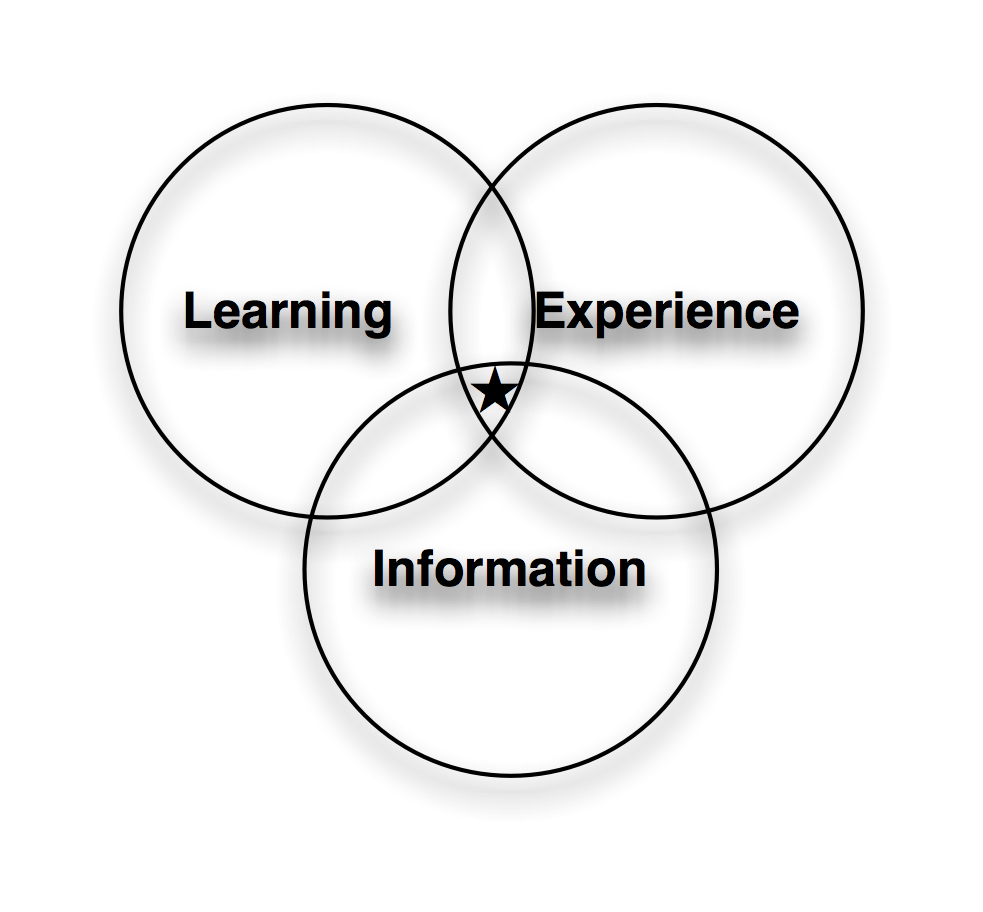Over at the TogetherLearn blog, I’ve posted an article about another way to think about the benefits of social learning. I’ve been concerned that the talk about chaos and emergent practice may seem too ephemeral to hard-nosed business decision makers, so I tried to make the goal concrete, or at least visual.
Then, of course, the important thing is the path to get there. Check it out!
 However, the community of practice will be responsible for collaboratively developing the content and resources, and the training department will have morphed into learning facilitators: refining the learning, information, and experience design around the community-established content, and also facilitating the learning skills of the community and it’s members. The learning facilitators will be monitoring the ongoing dialog and discussions, on the lookout for opportunities to help capture some outcomes, and watching the learners to look for opportunities to develop their abilities to contribute. They’ll also be looking for opportunities to introduce new tools that can augment the community capabilities, and create new learning, communication, and collaboration channels.
However, the community of practice will be responsible for collaboratively developing the content and resources, and the training department will have morphed into learning facilitators: refining the learning, information, and experience design around the community-established content, and also facilitating the learning skills of the community and it’s members. The learning facilitators will be monitoring the ongoing dialog and discussions, on the lookout for opportunities to help capture some outcomes, and watching the learners to look for opportunities to develop their abilities to contribute. They’ll also be looking for opportunities to introduce new tools that can augment the community capabilities, and create new learning, communication, and collaboration channels.